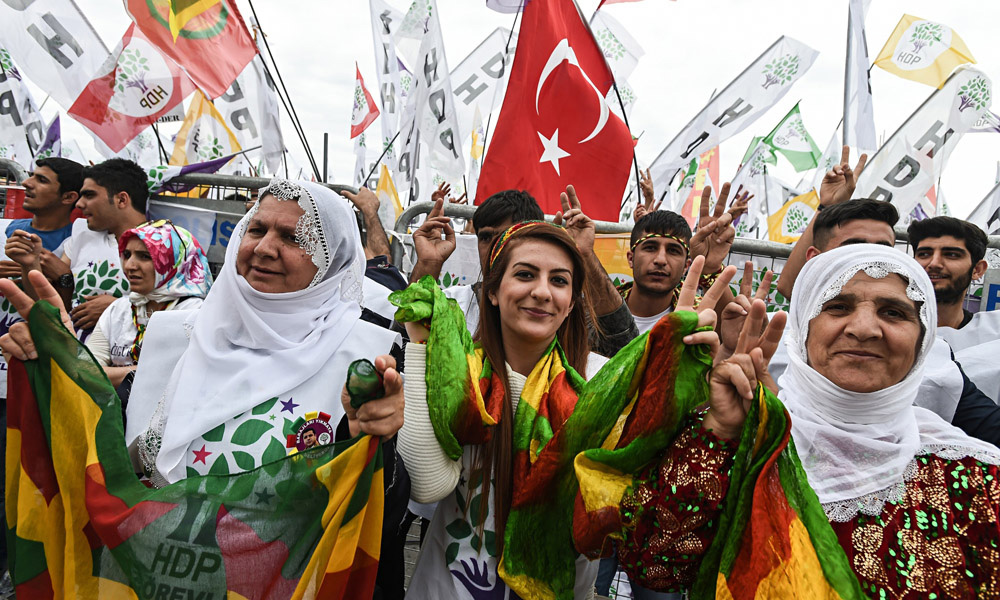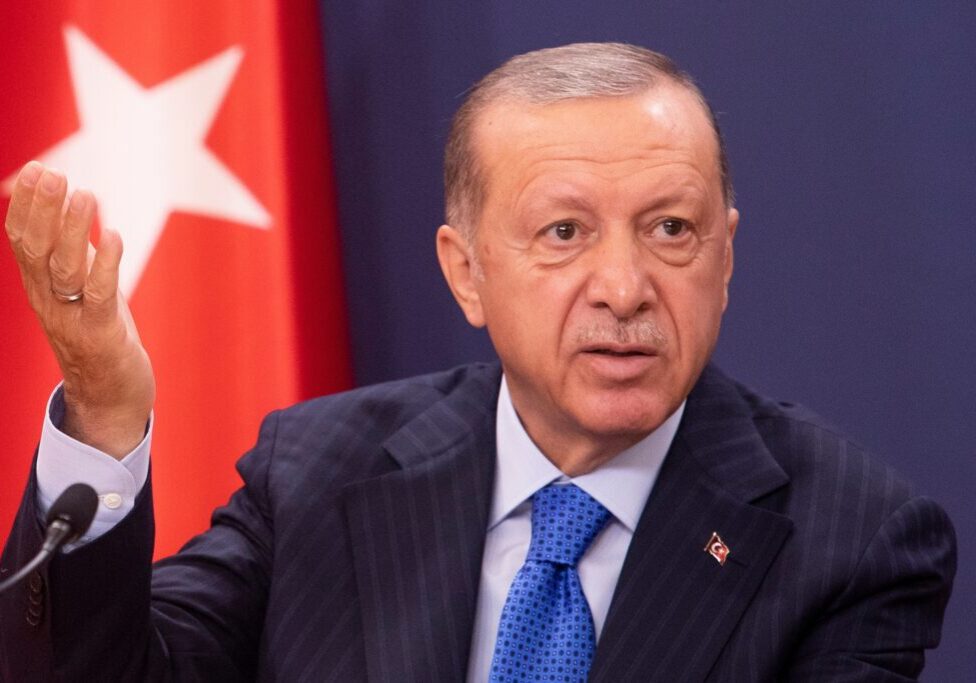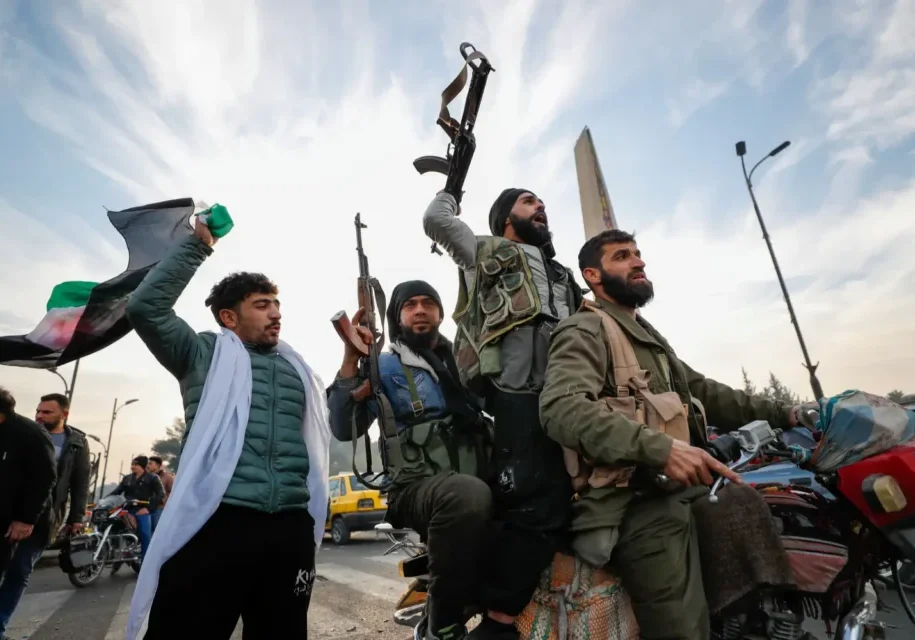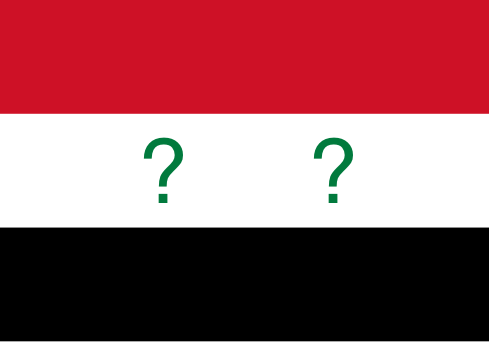Australia/Israel Review
Turkey’s Islamists take a bath
Jul 8, 2015 | Joseph Loconte

Joseph Loconte
Claiming victory for his Justice and Development party (AKP) in last week’s historic national election, Turkish Prime Minister Ahmet Davutoglu was defiant. “This election has shown that the backbone of Turkey is the AKP,” he told supporters at party headquarters in Ankara. “The AKP is the only party that is in all of the regions, all provinces, and embraces all of the citizens.” An analyst with Al Jazeera television, a sometimes boosterish outlet for the AKP’s Islamist agenda, offered a rougher assessment: “It was an image of confidence on a very bad night.”
Turkey’s June 7 parliamentary election was, in fact, a rebuke to the AKP and its increasingly autocratic leader, President Recep Tayyip Erdogan. Though the AKP received 42% of the vote nationally, its failure to capture a majority of seats means it has lost control of parliament for the first time since coming to power in 2002.
“There is no doubt that this is great news for Turkish democracy,” Mustafa Akyol, an author and columnist at the oldest English-language newspaper in Turkey, Hurriyet Daily News, told me. “The AKP was clearly headed towards illiberal democracy – or elected dictatorship – assuming the support of a great majority of society.”
Whatever direction Turkey’s democracy now takes, this overwhelmingly Muslim nation remains torn by clashing visions of the role of religion in politics and society. The dominant forces in the contest will shape not only the future of Turkey’s domestic politics, but its relationship with its Muslim neighbours – and with the democratic West.
Turkey’s secular government, adopted by its modern founder Mustafa Kemal Atatürk in 1923, retains strong cultural and political support. Yet many ordinary citizens resent the hard-line secularism – supported by military coups – that often seems at odds with their religious values. This helps explain the remarkable rise of the AKP over the last decade.
Promising to infuse Islamic ideals into civic and political life, the party won three consecutive parliamentary elections by ever-increasing margins – a first in Turkey’s republican history. After three terms as prime minister, Erdogan was elected president in 2014 with more than half of the popular vote, in the first direct election for that post in Turkey’s history. Following Sunday’s election, the AKP commands 258 seats in a 550-seat parliament. It remains the most widely supported party in Turkey.
Nevertheless, Erdogan has overplayed his hand. In recent years he has faced intense criticism for jailing unfriendly journalists, prosecuting individuals for “insulting” public officials, muzzling social media, and sacking hundreds of police and judges. The government violently quashed demonstrations in 2013, after thousands gathered peacefully in Istanbul’s Gezi Park to protest the park’s demolition. A recent Freedom House report faulted the government for “pronounced political interference” in the judicial system. Corruption charges levelled in 2013 continue to dog the administration.
Sahin Alpay, an Istanbul-based columnist for the English-language daily Today’s Zaman, told me he initially supported Erdogan and his economic reforms, but that his governing style has become “increasingly arbitrary and authoritarian.” Ilter Turan, a political science professor at Bilgi University, agrees. “The word ‘terrorism’ has been expanded by the government to cover anything they don’t like,” he told me over cups of tea.
Erdogan, in fact, was hoping the AKP could secure enough parliamentary seats to amend Turkey’s constitution and transform it into a presidential system, strengthening his executive powers in the process. But the plan found only modest support in opinion polls. All told, the AKP lost 70 seats in parliament, leaving it 18 short of a majority.
Anxiety and anger over the AKP’s agenda clearly energised the opposition. The Nationalist Movement party (MHP) won 16.5% of the vote, picking up 80 seats. The Republican People’s party (CHP), the founding party of modern Turkey and the main opposition party, collected 25% of the vote and 132 seats in parliament.
The lightning bolt was the strong performance of the leftist and pro-Kurdish Peoples’ Democratic party (HDP). Although Kurds compose roughly 20% of the population, they have lacked a political voice: The HDP has never won enough votes – a 10% threshold – to secure seats in parliament. For the first time the HDP won enough popular support – nearly 13% – to gain 80 seats.
“The ones who are authoritarian and arrogant lost, and the ones who are in love with liberty and peace in Turkey won at the polls,” HDP leader Selahattin Demirtas said in a televised statement.
Many Turks still view the Kurdish sympathies of the HDP with deep suspicion given its ties to the Kurdistan Workers’ party (PKK), the Kurdish separatist group engaged in a terrorist campaign against the government since the 1980s.
Nevertheless, the HDP has gone beyond ethnic-identity politics and broadened its appeal, attracting social democrats, liberals, young people, and women.
HDP leaders claimed a strong showing in Istanbul and other areas outside their Kurdish enclaves in the southeast of the country. Melih Sengolge, a parliamentary adviser, told me that many people voted for the HDP simply to prevent Erdogan’s party from capturing a majority.
The new math that for now defines Turkey’s political system has plunged the nation into a season of uncertainty. Erdogan and the AKP have received credit for Turkey’s “economic miracle,” attracting large investments from Europe and raising incomes and living standards. But the global recession has hit Turkey hard, and the worst may be yet to come: On the day after the election, the Turkish currency dropped to near-record lows against the dollar.
The AKP may try to form a coalition government, but that won’t be easy. There’s bad blood between Ankara and the opposition parties, most of which have vowed not to join the government. If the AKP fails to form a government in 45 days, the constitution calls for another national election – the outcome of which would be anyone’s guess.
What is likely in the short term is that Erdogan will continue to push his Islamist vision for Turkey. By executive order he has made religion classes – promoting a Sunni Islam curriculum – mandatory throughout the public school system. Students can opt out, but not without facing discrimination, explains Isil Oral of the Educational Reform Initiative at Sebanci University. “There is clearly a religious agenda in education in the making,” she told me.
Erdogan’s religious agenda in foreign policy – to support Islamist movements and regimes – is doing little to calm the fires of extremism in the region.
Over the last decade, Erdogan has endorsed the terrorist activities of Hamas against Israel. He has made Turkey among the most important supporters of the Muslim Brotherhood. Western members of NATO have pressured Turkey, a NATO member, to close its borders to prevent jihadists from crossing into Syria and fighting for the Islamic State (ISIS). But Erdogan has been unwilling to stop the flood, and thousands have joined the conflict.
Strengthening Turkey’s commitment to liberal democratic values does not appear to be high on the ruling party’s list. Last week’s election, though, offers hope of altering that reality. Millions of pious Muslims rejected the government’s Islamist agenda and voted for a more tolerant and pluralistic future. As an Al Jazeera analyst put it on election night: “Turkey has been able to stay away from a disaster, from the brink of a cliff.”
Joseph Loconte is an associate professor of history at King’s College in New York City and the author of God, Locke, and Liberty: The Struggle for Religious Freedom in the West. © Weekly Standard (www.weeklystandard.com) reprinted by permission, all rights reserved.
Tags: Turkey






